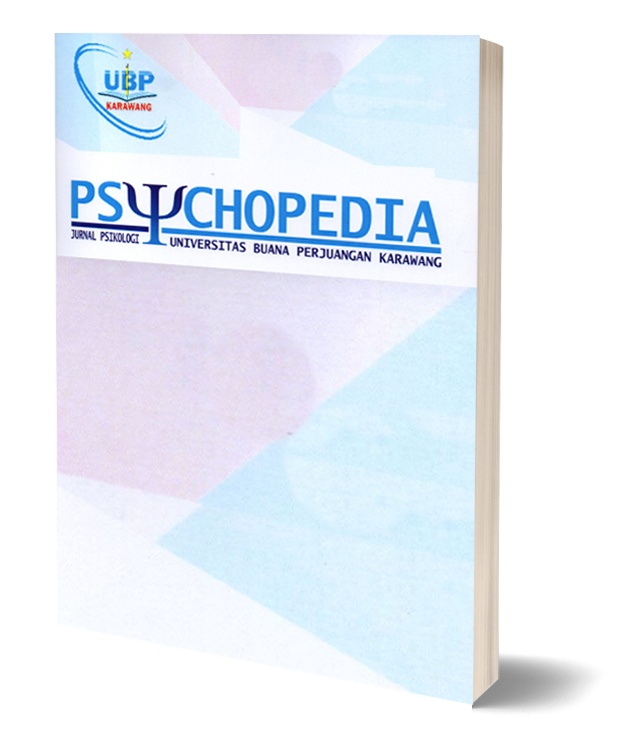OPTIMISME DALAM PENGKHIANATAN: PENGARUH RELIGIUSITAS TERHADAP OPTIMISME PADA KORBAN PERSELINGKUHAN
DOI:
https://doi.org/10.36805/psychopedia.v8i2.6124Keywords:
Optimisme; Perselingkuhan; ReligiusitasAbstract
Keyakinan yang dimiliki oleh seseorang dapat menimbulkan kepercayaan terhadap satu sama lain, khususnya dalam
suatu hubungan. Sikap tersebut dilakukan sebagai upaya untuk mempertahankan suatu hubungan. Karena itu,
penelitian ini dilakukan guna mengetahui apakah ada keterkaitan atau pengaruh antara religiusitas terhadap
optimisme pada korban perselingkuhan. Pengambilan sampel dilakukan dengan menggunakan convenience
sampling dengan jumlah 141 sampel. Skala yang digunakan dalam penelitian ini ialah International Islamic
University Malaysia Religiosity Scale (IIUMRelS) dengan 10 item dan The Indonesian version of the Life
Orientation Test-Revised (LOT-R) dengan 6 item. Analisis regresi digunakan sebagai teknik analisis dalam
penelitian ini. Hasil dari analisis adalah adanya pengaruh religiusitas terhadap optimisme pada korban
perselingkuhan, yang mana nilai konsisten optimisme sebesar 10,794 dan nilai koefisien regresi pada variabel
religiustas sebesar 0,323. Hal tersebut menunjukan bahwa sebesar 26,8% religiustas memiliki pengaruh terhadap
optimisme dan sisanya dipengaruhi faktor lain. Kesimpulan dari penelitian ini ialah semakin tingginya tingkat
religiusitas terhadap opimisme maka kan semakin tinggi juga tingkat optimisme pada korban perselingkuhan
Efficacy that someone owns can lead to trust in one another, especially in a relationship. This attitude is done as an
effort to maintain a relationship. Therefore, this research was conducted to determine whether there is a relationship
or influence between religiosity and optimism in infidelity victims. Sampling was carried out using convenience
sampling with a total of 141 samples. The scale used in this study is the International Islamic University Malaysia
Religiosity Scale (IIUMRelS) with 10 items and The Indonesian version of the Life Orientation Test-Revised (LOT-R)
with 6 items. Regression analysis is used as an analytical technique in this study. The result of the analysis is that
religiosity influences optimism in infidelity victims, where the consistent value of optimism is 10.794, and the value
of the regression coefficient on the religiosity variable is 0.323. This shows that 26.8% of religiosity influences
optimism, and other factors influence the rest. This study concludes that the higher the religiosity towards optimism,
the higher the optimism for infidelity victims.

